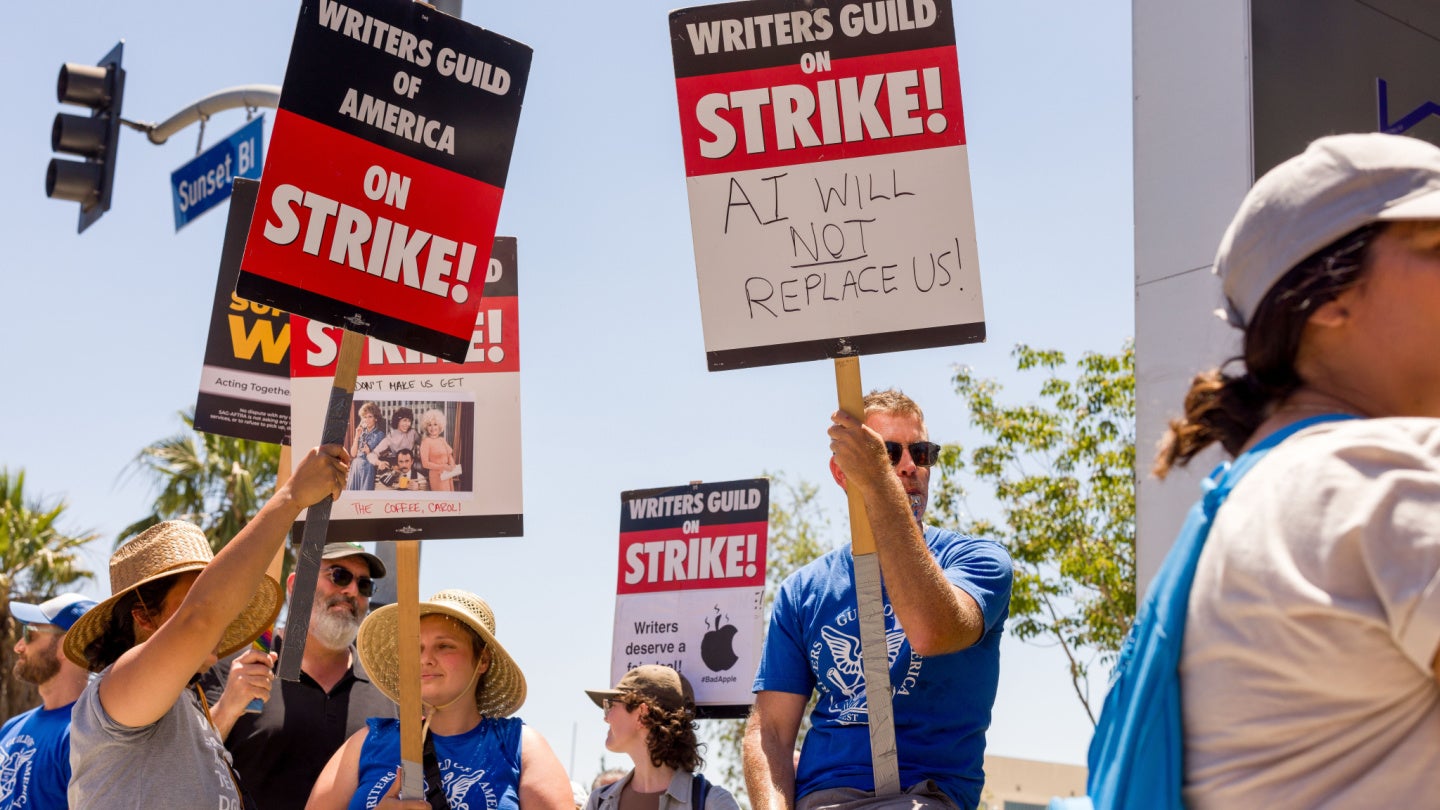
The Writers Guild of America (WGA) has announced it has reached a tentative agreement with US film studios that could mean the end of the ongoing Hollywood writers and actors strikes.
The strikes, which began back in May 2023, have largely centered around the use of AI within the film and TV industry. The deal, announced by the WGA on X (formerly Twitter), has yet to published publicly as the contract’s language remains to be finalised.
However, whilst the news of the deal is “in principle positive”, research director at GlobalData, Josep Bori, gave a realistic perspective on the strike’s future.
Whilst details on the WGA’s contract will need to be “finalised, voted and disclosed”, Bori was quick to note that the actors’ guild has yet to reach a similar agreement which means that the strikes’ impact is “far from over”.
Of the WGA’s three demands which include better pay and residuals from streaming platforms, Bori viewed AI as the most “crucial” concern for writers long term.
How well do you really know your competitors?
Access the most comprehensive Company Profiles on the market, powered by GlobalData. Save hours of research. Gain competitive edge.

Thank you!
Your download email will arrive shortly
Not ready to buy yet? Download a free sample
We are confident about the unique quality of our Company Profiles. However, we want you to make the most beneficial decision for your business, so we offer a free sample that you can download by submitting the below form
By GlobalDataDescribing pay and residuals as the “bread and butter” of the media industry, a clear view on AI’s use and impact within cinema is harder to determine, according to Bori, and could mean a middle ground will take longer to agree upon.
Whilst currently only one in five companies have adopted AI in their current day-to-day work, research analyst GlobalData forecasts adoption will increase as AI becomes more accessible and accurate.

AI’s potential for productivity can help media companies hone their value proposition whilst lowering costs and labour according to the analyst in its AI in media report.
AI’s disruption is not unique to the media sector, with other industries, such as education, are already experiencing significant impact from the technology.
Speaking to Verdict on why the entertainment industry has been so reactive to AI, is Jeanna Matthews a Professor of Computer Science at Clarkson University, New York, and chair of the AI Algorithmic Accountability Subcommittee on the ACM Technology Policy Council.
“It is interesting to see some of the first strikes in reaction to AI are coming from the entertainment industry,” Matthews begins, “For example, the Screen Actors Guild (SAG) and WGA are pushing back against some of the same forces rocking education – remote consumption and AI generation of content.”
“Studios increasingly want the rights to AI replicas of actors indefinitely and the ability to use large language models like ChatGPT to brainstorm plot lines or generate plausible dialogue,” she explains.
Whilst hallucinations, or generated content that is false, is creating a headache for businesses using AI in education or customer relationship management, Matthews points out that this problem is not as urgent when creating fictional content.
AI, she believes, is creating a “new environment” for worker rights.
“I think workers in [the entertainment] industry are wise to attempt to take a stand so early,” Matthews concludes, “Consumers may want to think both about their role as consumers of entertainment but also about the precedent being set for workers of all kinds.”
As AI continues to change how workers are compensated for their work, Matthews stated that similar disruption could be faced in sectors like education or healthcare.
AI supporting remote media consumption and content generation may be beneficial to businesses until it “clashes against society’s need for competent, well-trained individuals able to solve problems”.
Incorporating AI into business may “be another example of where short-term cost-cutting leads to huge problems, but where the economic incentives make it difficult for anyone to tackle these problems” concludes Matthews.







